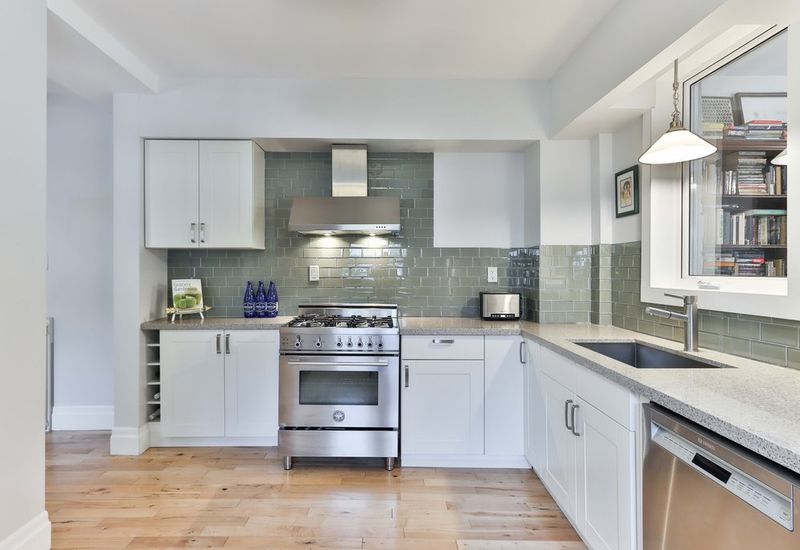Last week, we showed you how to spot a bad student house. This week, we’ll give you all the info you need to secure the right pad for you.
Our friends at Student-It know exactly what you should be looking out for when picking out the perfect student house. They’ve kindly broken it down into the easy steps below:
1. Student-focused agents
Whilst you’ll be dealing with private sector agents and landlords regardless, some of these groups will be far more sensitive to your situation as students than others. Seek out these student specialists where possible; a lot of universities give their students a list of pre-approved agencies and those that don’t will usually have Facebook groups highlighting the best student options. If you can’t find any of these, then get in touch with your SU and they should be able to point you in the right direction.
2. Good communication
It makes such a difference having a proactive landlord and agency. A house viewing isn’t a perfect substitute for living somewhere and there’s always a chance that some unforeseen issues will pop up during your tenancy; these can be minimised if you’ve chosen a fair landlord who acts on them quickly.
Whether it’s a leaky tap, a springy mattress, or a flimsy fence, your living experience will be immeasurably improved if the people you’re renting off can nip it in the bud quickly and efficiently.
3. Great interiors and amenities
Keep an eye out for houses that look like they’ve been done up recently. With loads of students in the market for a new place, some landlords will want to go that extra mile to really make their property stand out. If there’s currently construction work going on, you can ask the person showing you around about it, or you can pick their brains to find out if anything is going to be done before you move in.
Sometimes you can get really lucky and move into a place with a free TV, dishwasher or something else that’ll allow you to lord it over your mates when they come over to check out the new pad.
4. Simple processes with no hidden costs
Not all agencies and landlords are dodgy and most will offer you fair terms for moving into their property. Often, private landlords or those who deal with their tenants directly are a lot fairer with admin and fees, and issues are much easier to resolve without the additional bureaucracy of a middle man. Before you sign your contract (assuming you’ve read it properly and are happy with the terms offered), ask who you’ll be dealing with on a day-to-day basis and consider pulling out if things sound a little complicated.
Knowing all of this, you’ll be able to find the ideal student pad in no time. To make sure you’re not caught off-guard though, just make sure to ask questions and be wary of these telltale signs:
- House quality: Often the easiest one to judge. Does the place you’re viewing look like somewhere you’d want to live?
- Pushy sales tactics: Is the agent trying to make you sign there and then? Tell them you want time to review the contract and your options; if it falls through, there’s usually plenty more fish in the sea!
- Bad communication: Was the agency easy to contact? Do you think communication could be an issue in the future?
- Bad reviews: Whilst some bad reviews are acceptable, look through as many as you can and try to discern any worrying patterns. If the agency looks bad then follow your gut instinct and don’t go through with it!
- Out of the ordinary rents: As well as places that look too expensive, when you see a cheap listing ask yourself “is this too good to be true?” If the answer is yes, then think twice, as corners may have been cut and you might be in store for a nasty surprise.
- Cleanliness: Expect a bit of wear and tear, especially if students are living there, but also keep an eye out for things like mould, damaged wallpaper and old, dusty carpets. Houses should be refurbished every 1-2 years, so ask your agents when the next one is due.
- Accreditation: Don’t take your agency’s status for granted. At the very least, they should be registered to some form of deposit protection scheme. If the landlord doesn’t have a partnership with your university, check with the local council to see if they’re registered with them.
- Contracts and tenancy agreements: We can’t stress this enough; REVIEW YOUR CONTRACT THOROUGHLY! As well as keeping an eye out for hidden costs, check if terms such as contract length and damage policies are favourable.
If you follow all these steps then the chances are you’ll land yourself a great home for the next year or two. Just make sure to put yourself and your housemates first. And if you’re in doubt, make sure to check out Student-It’s comparison website!
Prospective student? We want to hear from you! Join the Student Hut Forum and earn £s by taking surveys.













